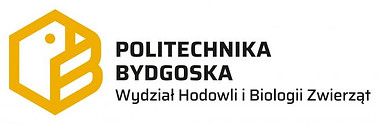
Research & Development
Research and Development takes place internally and in collaboration with academic partners worldwide. The BioAtlantis R&D department is multidisciplinary with expertise spanning the natural sciences and engineering fields, including formulation chemistry, chemical engineering, plant molecular biology, agronomy, nematology, porcine health, immunology and microbiology.
The target is to develop naturally derived products which are proven to have an efficacy equivalent to or greater than chemical synthetics. While this target is challenging, it can be achieved by applying the right methodology. A ‘fitness-for-purpose’ approach to product development and validation is employed. This involves tailoring formulations to target specific mechanisms which underlie the problem we are trying to solve. Formulations are created based on bioactive compounds of known function, mode-of-action, stability and safety.

Efficacy
In vivo efficacy screening is performed to identify formulations that are effective on a consistent basis. These formulations are sent to external universities for validation. The formulations proceed to further verification at a larger, industrial scale. The final stage of product development is to implement the necessary quality procedures and testing systems. The products are then launched and backed by proven claims. The R&D department develops screening assays and systems to ensure batch-to-batch consistency of new products, both in terms of in vivo efficacy and bioactive content.
BioAtlantis has a proven track record in R&D
Over 80 peer-reviewed scientific papers have been published on the efficacy of BioAtlantis' products and formulations. BioAtlantis previously coordinated an EU FP7 project called “Thrive-Rite”, focused on the development of replacements to the use of in-feed antibiotics in pig and poultry production. A summary of BioAtlantis’ involvement in European research consortia is provided as follows:
Naspa
(EU Interreg Atlantic Area Programme)
Development of natural fungicides against air & soil borne pathogens in the Atlantic Area.
BIOATLANTIS AND PBS ARE DRIVING THE DEVELOPMENT OF NOVEL TECHNOLOGIES TO ENHANCE AVIAN HEALTH.
BioAtlantis is currently collaborating with Bydgoszcz University of Science and Technology (PBS; https://pbs.edu.pl/), in a project called “OvoBiom” (https://projekty.ncn.gov.pl/index.php?projekt_id=466209), focused on early microbiome modulation using probiotics and prebiotics. BioAtlantis C.E.O., John T. O’Sullivan is also on the external advisory board of “Monoguthealth” (https://monoguthealth.eu/), an EU project involving PBS which is focused on the study of microbial colonisation and methods to minimize veterinary interventions in pig and poultry. By collaborating with PBS, BioAtlantis is continuing its research and development program in the area of avian health.
This research builds on previous work undertaken by BioAtlantis and PBS as part of an EU FP7 project called ‘THRIVE-RITE’ (http://www.thriverite.eu/), a project coordinated by BioAtlantis focused on the development of effective alternatives to in-feed antibiotics in monogastric animal production.





